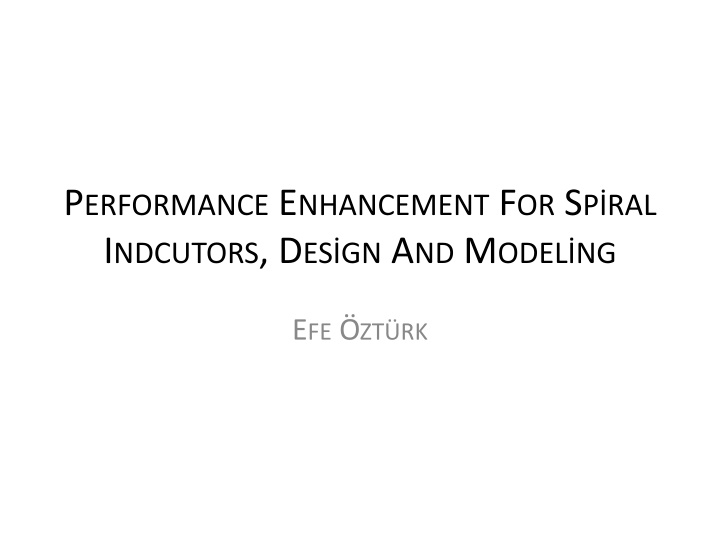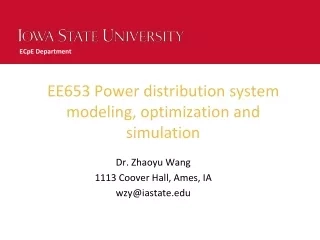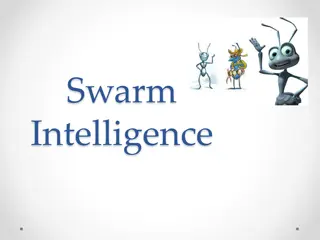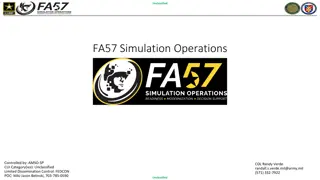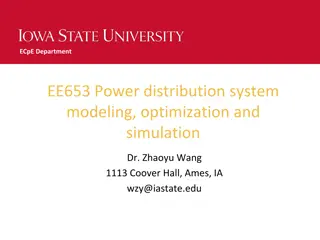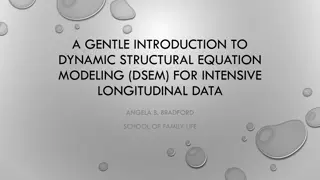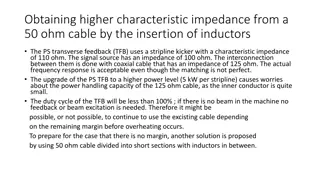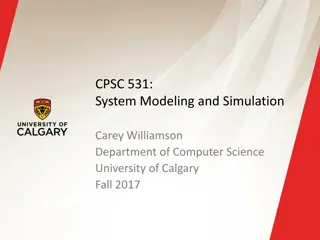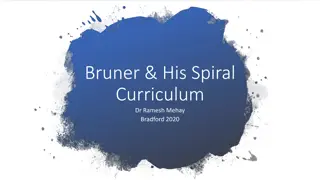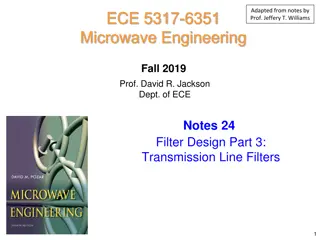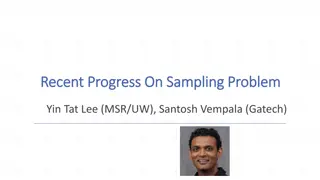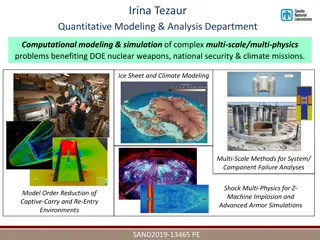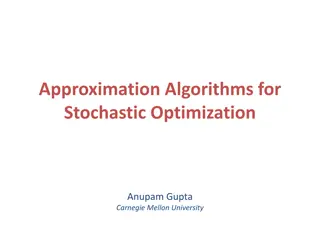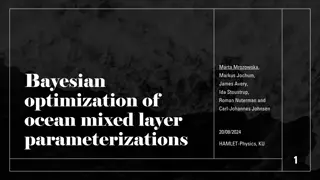Enhancing Spiral Inductors: Design, Modeling, and Performance Optimization
Understanding the importance of inductor parameters like inductance value, self-resonance frequency, and quality factor, this content explores loss mechanisms in inductors and ways to improve their quality. It delves into topics such as reducing phase noise in oscillators, minimizing insertion loss in filters and baluns, and enhancing power consumption efficiency in amplifiers. By optimizing physical properties, utilizing patterned ground shields, and exploring new inductor models, the performance of spiral inductors can be significantly enhanced.
Download Presentation

Please find below an Image/Link to download the presentation.
The content on the website is provided AS IS for your information and personal use only. It may not be sold, licensed, or shared on other websites without obtaining consent from the author.If you encounter any issues during the download, it is possible that the publisher has removed the file from their server.
You are allowed to download the files provided on this website for personal or commercial use, subject to the condition that they are used lawfully. All files are the property of their respective owners.
The content on the website is provided AS IS for your information and personal use only. It may not be sold, licensed, or shared on other websites without obtaining consent from the author.
E N D
Presentation Transcript
PERFORMANCE ENHANCEMENT FOR SPRAL INDCUTORS, DES GN AND MODEL NG EFE ZT RK
Contents Introduction Loss Mechanism in Inductors Ways to improve quality Conclusion
Introduction Important inductor parameters Inductance value Self resonance frequency Quality factor With a low-Q inductor : Increased phase noise in oscillators High insertion loss in filters & baluns High power consumption in amplifiers Poor I/O impedance matching
Loss Mechanism Desired Inductance value : Ls Metal sheet resistance : Rs Series feed-forward capacitance or sum of all overlap capacitance: Cs
Loss Mechanism Spiral to substrate capacitance : Cox Substrate capacitance : Csi Substrate resistance : Rsi
Loss Mechanism Eddy current components, skin effects, proximity effects : R1 & L1 On substrate On metal trace
Eddy Currents [ref.17] 1) Eddy Currents On substrate On metal trace 2) Skin Effect 3) Proximity Effect Rs & Substrate loss increases
Spiral Inductor Lumped Modeling Maximum Attainable Q < 1 < 1
Spiral Inductor Lumped Modeling Maximum Attainable Q < 1 < 1 Increase Rp Reduce Rs Reduce Cox Reduce Cs
Ways to improve Q Physical Properties (width, spacing...) Patterned Ground Shield (PGS) Metal Stack, Thicker Metal Layer High Resistivity Substrates New inductor models Oxide Etching
Ways to improve Q 1-High Resistivity Substrate [ref.2] Play with substrate ! High resistivity substrate (Glass with relative permitivity: 5-6): high Rsub (compared to Si) Reduced Csub (compared to Si) Impedance of the substrate network simply reduces to a single capacitance dominated by the smaller between Cox and Csub
Ways to improve Q 2-Polymer Cavity [ref.15] Play with substrate ! Increase Rp (Rsub) Reduce Cp (Csub+Cox) Polymer underneath (perm:2.75) Higher resistivity ( high Rp) Lower permitivity ( low Cp)
Ways to improve Q 3-Change Model [ref.10] Series feed-forward capacitance or sum of all overlap capacitance, metal to metal cap, Cs
Ways to improve Q 4-Oxide Etching [ref.4] Remove the oxide layer between the spiral and substrate by an optimized etching tech. Improve the insulation to inductor Relative permitivity becomes 1 (vacuum) Cox capacitance minimized Reduced substrate effect
Ways to improve Q 5-Metal Thickness & Stack [ref.18] Increase metal thickness for high-Q : Increased metal sidewall areas of current Decreased metal resistance, Rs Stack the metals : Combine metal layers through vias Decreased metal resistance, Rs
Ways to improve Q 6-Patterned Groung Shielding [ref.9] Substrate Loss Factor approaches to unity as Rp inf. Rp approaches to inf. as Rsi inf. or Rsi 0. Patterned Groung Shielding acts as a short. Slotted pattern reduces the negative mutual coupling. The slots act as open circuit. Prevents the build up of image current Q,NGS < Q,SGS < Q,PGS * NGS: no ground shield * SGS: solid groung shield * PGS: patterned ground shield
Summary To improve factor : Reduce Rs Increase Rsub Reduce Csub Reduce Cox Reduce Cs
